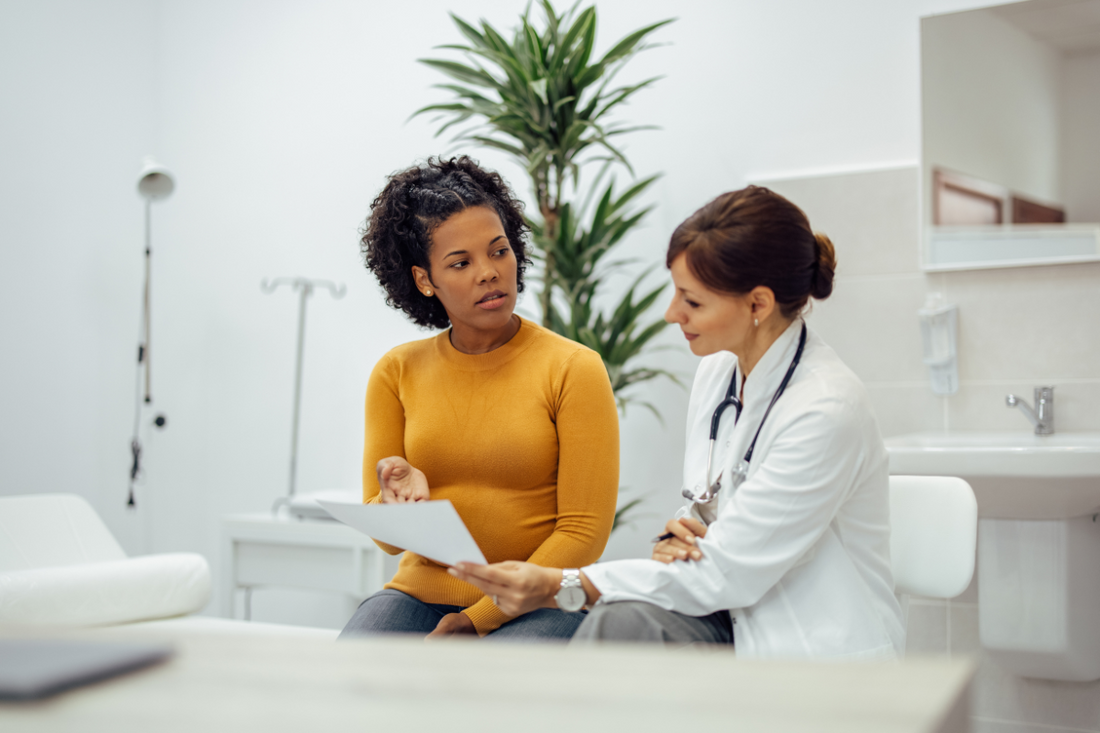
Why Women Are Frustrated With the Medical System: A Discussion on Women’s Health
Share
Unfortunately, there are still large gender biases in health care. No one seems to know this better than individuals who identify as female, who are often solely responsible for advocating — hard— for their bodies. If you've ever been on the receiving end of a medical professional not properly listening to you, and not offering tangible suggestions, please know that you are not alone.
Throughout history, there have been unique challenges faced by women. Women are often ignored, trivialized, put down, or misunderstood when it comes to their wellness and health.
What's Up, Doc?
For as long as we can tell, women's health concerns have not only been inappropriately pathologized but also frequently dismissed or discredited. All too often, medical professionals mistakenly ascribe women's symptoms to factors like stress, mental health issues, or indistinct hormonal fluctuations.
The foundation of modern medicine has largely been based on male-centeric research. Historically, clinical trials primarily involved male subjects (and rodents!) leading to a skewed understanding of diseases and their treatment. For women, this means that many drugs, treatments, and therapeutic protocols were never tested specifically for them, potentially leading to less effective or even harmful outcomes.
The unique physiological and hormonal differences between males and females can greatly impact the manifestation and progression of diseases, as well as responses to treatment. With women underrepresented in studies, there's a lack of data to inform treatments tailored specifically to their needs. For example, one study revealed that women faced a seven-fold higher risk than men of being incorrectly diagnosed and subsequently released from the Emergency Room while experiencing a heart attack. The root of this discrepancy was the predominant medical perceptions of many diseases are anchored in male physiological frameworks. Consequently, since women manifest heart attack symptoms differently than men, they are often misdiagnosed.
This becomes even more evident in menstrual health. If you have ever experienced something that feels wrong, it's probably because it is. Things like severe pain/cramping between periods, unusually heavy bleeding, passing large clots, long-lasting periods… etcetera: these things are not normal! When you're told it is, it's natural to be upset—which leads up to our next point.
Dismissal of Pain and Symptoms
The severity and the implications of period-related pain have long been underestimated, minimized, or downright dismissed by the medical community.
Endometriosis is a prime example of the ramifications of ignoring women’s menstrual pain. Affecting 1 in 10 women of reproductive age, endometriosis is a painful disorder where tissue similar to the lining of the uterus grows outside the uterus. Despite its prevalence, women with endometriosis face an agonizingly long wait for a diagnosis and the wait can be even longer for black women. The pain, often dismissed as "just bad periods," can lead to severe complications if untreated. The delay not only exacerbates physical suffering & potential infertility, but also takes a toll on the mental well-being of the affected women. Another condition, polycystic ovary syndrome (PCOS), affects up to 10% of women of childbearing age. Symptoms can range from menstrual irregularities to severe pelvic pain and many women suffer in silence for years, often being told that their symptoms are just a "normal" part of their menstrual cycle.
One of the recurring narratives around menstrual pain is that it is psychosomatic – a notion deeply embedded in the age-old stereotype that women are more emotional and, therefore, more likely to "imagine" pain. It's worth noting that women constitute 70% of folks affected by chronic pain, such as period pain. However, strikingly, 80% of chronic pain research focuses on male mice or male human subjects. Among the limited studies that delve into gender distinctions in pain perception, it's observed that women often experience pain more frequently and with greater intensity compared to men.
Not all healthcare providers have specialized training in women’s health, even if they are treating women. A study found that a significant number of general practitioners lacked knowledge in diagnosing conditions like polycystic ovary syndrome (PCOS). Without adequate knowledge, misdiagnosis or prolonged diagnosis can occur, leading to prolonged suffering and potential complications.
Intersectionality
Steep medical expenses coupled with hard-to-reach healthcare services can wreak havoc on the lives of economically disadvantaged and unhoused women, leading them to often overlook pressing health concerns. Women with disabilities encounter a myriad of obstacles ranging from societal biases and financial constraints to physical barriers when seeking medical attention.
The healthcare experience for queer women isn't devoid of bias either; for instance, there's a misguided belief that lesbian women have a decreased risk for cervical cancer, leading to fewer preventative screenings. Trans women, along with other members of the transgender community, also grapple with widespread bias and oversight within the medical sphere.
Historically, menstruation has been a taboo subject in many cultures, often shrouded in mystery and silence. This cultural reticence has contributed to a medical landscape where women’s menstrual pain and its associated symptoms have been trivialized or brushed off as "normal."
Conclusion
The persistent dismissal of symptoms is a reflection of deep-rooted societal biases against women's experiences. A paradigm shift in how the medical community approaches, understands, and treats health, including menstrual health, is paramount. Only with more informed and empathetic healthcare can we hope to properly address and treat the myriad issues associated with women's period health.
